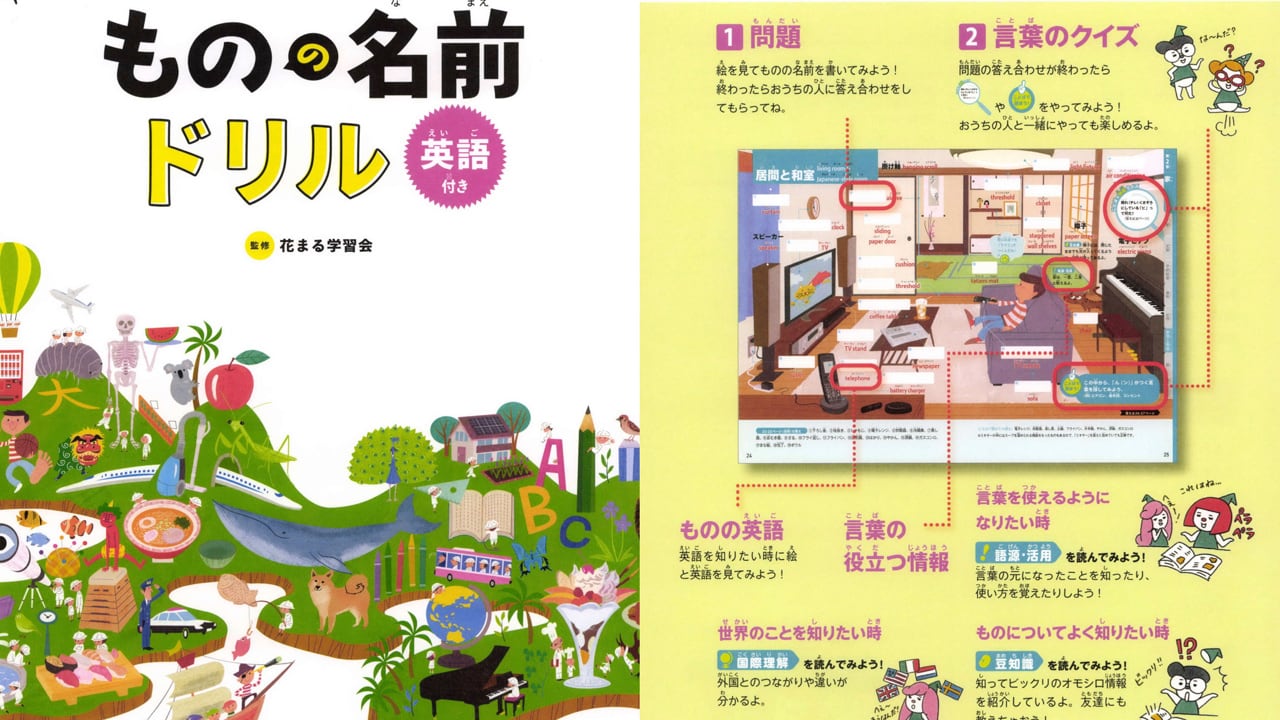
This fun, attractively-illustrated book is designed to help Japanese children practice their vocabulary and writing skills, so it covers all kinds of nouns that kids in Japan are likely to come across in their everyday lives. As such, it's a great primer on life in Japan, and all the concrete nouns that will help you navigate it more easily!
The book is broken down into eight chapters, each covering a major theme, including food, school, nature, and proverbs. Each chapter consists of double-page spreads showcasing objects and people that fall under one of the eight main topics. In the food chapter, for example, there are sub-topics such as 日本の米料理 (Japanese rice dishes), すし, and 日本のおやつ (Japanese snacks). All the nouns have English translations, and most have a blank space for you to write in the Japanese yourself, with the answers given on a different page. Some of the more advanced words — like 掛け 軸 (hanging scroll) — are simply provided for you, though. There are also little tidbits, quizzes, and word games on most pages, giving extra information about things like etymology and usage. Since it's written for children, the writing style is straightforward and all kanji have furigana.
Even advanced learners might not know the Japanese for "disaster prevention hood" or "lumpfish."
Some of the English translations are questionable, but the illustrations make the meaning crystal clear even when the English doesn't. From a learners' perspective, the vocabulary ranges from the very simple to the downright niche. Even advanced learners might not know the Japanese for "disaster prevention hood" or "lumpfish," for example 🤓. But almost all of them would potentially come in handy if you live in Japan. The vocabulary is obviously child-oriented, so would be also useful if you're planning on spending time with children.
On the flipside, this book is probably not for you if you're looking for exam techniques or business Japanese. It may also not be the most efficient learning tool, but it is a cute and colorful supplementary study resource that's worth checking out if you're intermediate level and currently living in Japan, or planning to do so in the future!